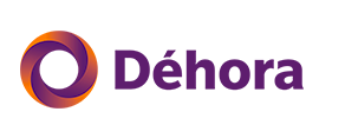News from Members
Efficient workforce planning and management help you run your business in the corona times
Read more about this topic in the article bellow prepared by Déhora, a member of the CDCC.
Practically all organisations have to deal with the impact of the Coronavirus reality on their business. Companies are faced with instantaneous increased or reduced demand for their products or services. They have to deal with big staff shortages or surpluses, or the question of how to adequately switch to the Home Office.
All this puts a lot of extra pressure on work force planning. How can adequate working time instruments or shift models prevent that your workforce gets overloaded?
To help alleviate the work pressure, Déhora’s consultants continue to be available for strategic and operational advice, including the implementation and customisation of Planning and Scheduling Software.
 Workforce planning software demo’s
Workforce planning software demo’s
Crisis situations require rapid change. And in times of change, optimal communication between companies and their employees is vital. Déhora offers smart workforce planning solutions, including communication apps and interfaces and has scheduled web based demo’s to further highlight the added value of these software tools for all kind of organisations and sectors: healthcare, retail, call centers and logistics or manufacturing.
During the webinars demo’s we show how software tools for staff planning work and what the advantages for your organization can be. For instance, you can see in a glance which employees are missing and who are capable and available to replace them. Then there are up-to-date overviews for managers as well as employees with work-hours, holidays, absence and extra pay for nights or weekends. Also employees can create (part of) their schedules by themselves, swap shifts with colleagues or apply on-line for shift-changes. All these functionalities save a lot of time and reduce the risk of under-or overstaffing situations and resulting costs. On top of that employee satisfaction improves thanks to greater involvement.
For more information about the workforce planning demo’s contact us at: info@dehora.cz
Implementation Plus / Minus Worktime Accounts
The Plus / Minus Worktime Account or, in German, Arbeitszeitkonto is a strong instrument for time management within organisations. Czech law allows for the use of Working Time Accounts too. The accounts are used to distribute working time between days, weeks or months. This provides direct extra flexibility for companies, while securing income levels for employees. Actual work time performed of the employees (including leave, illness, overtime, etc.) is compared to the amount of work to be performed according to their labour contract or company standards. In case of positive or negative differences, time credits or time debts are built up. Differences need to be balanced out during a defined clearing period. This can be a quarter, half a year or a year. For the comparison, a reliable and individual measurement is necessary. Electronic time recording systems are often used for this purpose. Paper-based (manual) administration is also possible but creates an administrative burden and risks of mistakes.
The consultants of Déhora have experience with efficient, legally sound implementation of Work Time Accounts procedures and processes and can help you with a solid, fast and smooth implementation.
For more information about legally sound implementation of plus / minus worktime accounts, contact us at: info@dehora.cz
Shift models with increased flexibility
As we now all well know, because of Corona there are industries that are affected by reduced demand for their products or services and reduced staff needs, while others are barely able to cope with the amount of work. Problems can be solved by (temporarily) changing existing shift schedules and increasing flexibility. How do you deploy your employees in the best possible way? Déhora knows how to create crisis shift models that provide for extra flexibility because they include planned reserve and / or flex shifts. Models for 7 days or 5 days, for 3, 4, 5 or 6 teams … These models are immediately applicable in all sectors: healthcare, retail, call centers and logistics or manufacturing. Meetings about frameworks and conditions for these planning solutions are possible via web.
For more information about shift models with increased flexibility contact us at: info@dehora.cz
Implementation Home office
Many organisation have been busy with it for weeks now – Home office. The government recommends it, the businesses need it and it almost sounds as if it has become standard practice. However, unfortunately, it is not possible for a lot of jobs. But, even where it can be implemented, an orderly framework should be provided when the concept is to be used for a sustained period of time. Déhora has a small and simple but effective set of rules ready, that will make everyone feel “comfortable” and that works. Use these perhaps first experiences with home-office to be prepared for the future, structurally. Also Déhora can help schedule home office shifts for your employees in controlled, cyclic patterns
For more information about legally sound, planned home office for you employees, contact us at: info@dehora.cz
Roster Risk Profile Analysis
What is the physical stress of a shift roster for your employees? How regular and predictable are the schedules of your staff? Do they have a full weekend off on a regular basis? These are just some of the issues that have an impact on the health of your employees.
Déhora has developed an objective way of assessing the physical and social burden of work schedules: the Roster Risk Profile Analysis (RRPA). The RRPA analyses work rosters based on nine criteria. It can be applied for all types of work rosters. The scores generated by the RRPA are based on scientific research linking shift work with occupational health conditions. Each of the criteria is rated from 0% to 100%, whereby 100% is the best score, so the lower the risk, the red, orange and green color-coding for the RRPA scores (the ‘traffic light model’) make it easy to see at a glance what the scores are: scores below 60% (red) means there is an immediate significant health risk; between 60% and 75% (orange) means there is an indirect risk, because a medical condition potentially occurs after a longer period; a score of 75% or over(green) means there is no risk for that particular criterion.
For more information about our Roster Risk Profile Analysis, contact us at: info@Dehora.cz
Déhora Academy
Déhora Academy is a training institute for workforce planning professionals who want to improve their knowledge and expertise in the field of workforce planning and management. The first four trainings are now also available via webinar (max 5 participants).
- Workshop Making a Shift Model (Work Schedule; Roster) – ****
- Workshop How Avoid Shift Work-related Health and Safety Risks – ***
- Workshop Working Hours / Labour Law – **
- Training Increase Flexibility Through Capacity Planning – ****
- Workshop Creating a Company Scheduling Policy – *****
- Staff Planning Training on the Job, tailor-made – *****
- Workshop Workforce Planning for Temping Agencies – ****
- Masterclass Self-scheduling – *****
For more information about our workshops and trainings, contact s at: info@dehora.cz
Self-scheduling for improved employee engagement
In a classic collective shift model, everybody has the same work-hours. Each team-member follows the same shift patterns in a fixed cycle of several weeks. The cycle is predictable and offers security in hours, extra pay and days off. If workload is does not change and the type of labor contracts of all the employees are all exactly the same, group scheduling can be a good solution. However ..as the virus reality has shown us, workload can change with the blink of eye. And survival of organisations depend on their ability to change instantaneously. Combine this with the fact that employees find it increasingly difficult to work round-the-clock shifts without being able to influence their worktime. Some periods they want to work more and some less. Some employees prefer days and others prefer nights. Some like extra weekends, others want to be free. In these circumstances, employee self-scheduling creates a win-win situation: the organization gets the desired flexibility and employees get to enjoy more personalised labour conditions. This will engage them more. And engaged employees, leads to increased productivity.
Déhora has implemented self-scheduling pilots in numerous organisations in various sectors, also in the Czech Republic. Do you want to know if self-scheduling is a solution for your organisation?
For more information about self-scheduling for improved employee engagement, contact us at: info@dehora.cz

